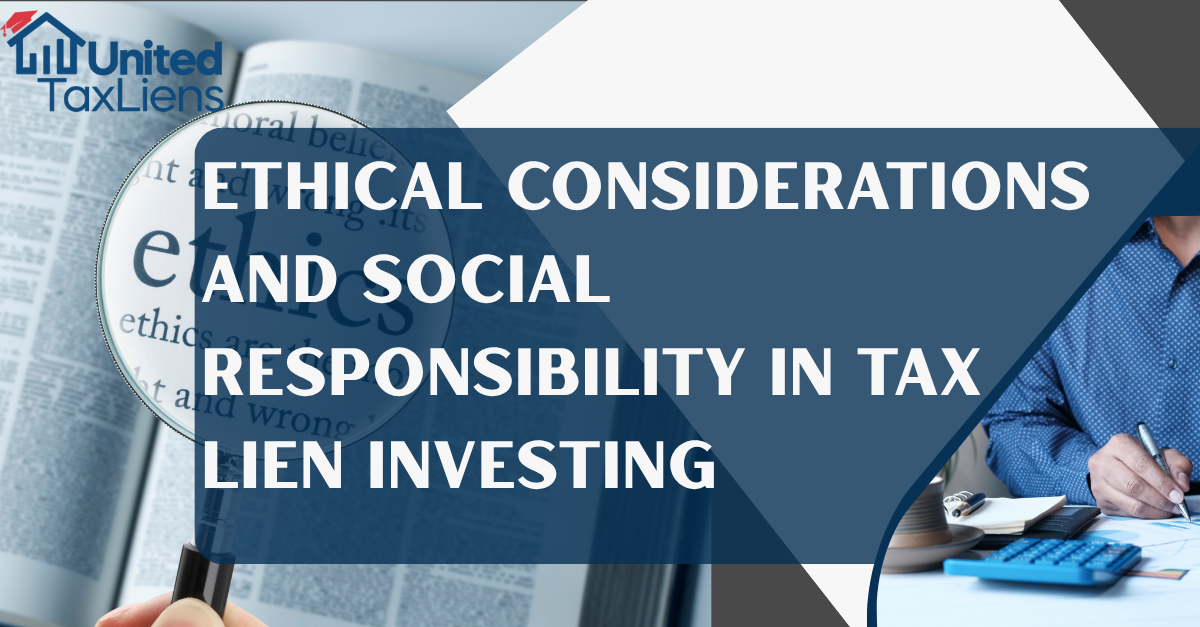Let's talk about something that doesn't get discussed enough in investing circles—the fact that behind every tax lien is a real person with a real story. And as investors, we get to choose how we show up in those stories.
Sure, tax lien investing can offer financial opportunities. But it's also worth remembering that we're often dealing with people who are going through some of the most challenging times of their lives. How we handle that reality says a lot about who we are as investors—and as people.
The Foreclosure Fork in the Road
Here's a scenario that might make you uncomfortable: You've held a tax lien for the full redemption period, and now you have the legal right to foreclose. The property owner hasn't paid, and technically, you could move forward with taking ownership.
But here's the thing—there's often more to the story than just “they didn't pay.” Maybe it's an elderly person who got confused about the process. Maybe it's someone who lost their job and is scrambling to figure out their options. Maybe it's a family that inherited a property and honestly didn't know they had tax obligations.
Some investors we know have made it their practice to reach out before jumping straight to foreclosure. Not because they have to, but because they want to. Sometimes a simple conversation reveals that the property owner just needs a little more time or wasn't aware of payment plan options.
Consider a situation where an elderly property owner might be facing foreclosure simply because they didn't understand the notices they'd been receiving. A phone call could potentially lead to connecting them with local resources, allowing them to resolve the situation. This type of outcome could benefit everyone involved.
Now, this doesn't mean you should become a social worker or put your own financial interests at risk. But it does mean considering whether there might be a solution that works for everyone involved.
What Happens After You Win?
Let's say you do end up acquiring a property through the tax deed process. Now what? This is where your choices can really impact the community around you.
You've probably seen neighborhoods where abandoned properties sit and deteriorate, dragging down property values and creating problems for everyone else trying to live there. It's depressing, and it's not good for anyone.
On the flip side, you've probably also seen areas where someone took a neglected property and brought it back to life. Fresh paint, new roof, maybe some landscaping—suddenly the whole block looks better, and neighbors start taking more pride in their own properties.
Which investor do you want to be? The one who lets properties sit and decay, or the one who sees potential and acts on it?
Many investors view property rehabilitation as part of their investment strategy, not just a nice side benefit. They know that improving properties doesn't just help their bottom line—it helps create communities where people actually want to live and invest.
The Ripple Effect of Your Choices
Here's something that might not be obvious at first: your reputation as an investor follows you around. In smaller communities especially, word gets around about who's fair to deal with and who isn't.
The investor who works with property owners when possible, who fixes up the properties they acquire, and who treats people with respect? That person tends to get better cooperation from local officials, more referrals from other professionals, and generally has an easier time doing business.
The investor who's known for being ruthless or letting properties deteriorate? Well, that reputation follows them too, and it rarely makes business easier in the long run.
Finding Your Ethical Compass
So how do you balance being a successful investor with being a decent human being? There's no perfect formula, but here are some questions that might help guide your decisions:
Before foreclosing: Have you made a reasonable effort to communicate with the property owner, when it’s legal? Are there alternatives that might work for everyone?
After acquiring a property: Are you contributing to the community's improvement or decline? What would you want to see happen if this were your neighborhood?
In your overall approach: Are you treating people the way you'd want to be treated if you were in their situation?
The Business Case for Ethics
Here's something interesting: being ethical isn't just good for your conscience—it's often good for business too. Properties in improving neighborhoods tend to appreciate faster. Communities with responsible investors tend to be more welcoming to future investments. And having a reputation for fairness can open doors that might otherwise stay closed.
Plus, there's something to be said for being able to sleep well at night knowing that your success isn't coming at the expense of others' misfortune.
The Reality Check
Now, let's be realistic. Tax lien investing is a business, and you can't save everyone or solve every problem. Sometimes foreclosure is the right choice—maybe the property truly is abandoned, or the owner has had plenty of time and opportunity to resolve the situation.
The goal isn't to be a pushover or to sacrifice your own financial interests. It's to be thoughtful about your choices and to recognize how you conduct business matters—both for your success and for the communities where you invest.
This blog is for informational purposes only and should not be relied upon as financial or investment advice. Real estate investing carries risks, and individual results will vary. Always consult with your team of professionals before making investment decisions. The authors and distributors of this material are not liable for any losses or damages that may occur as a result of relying on this information.



